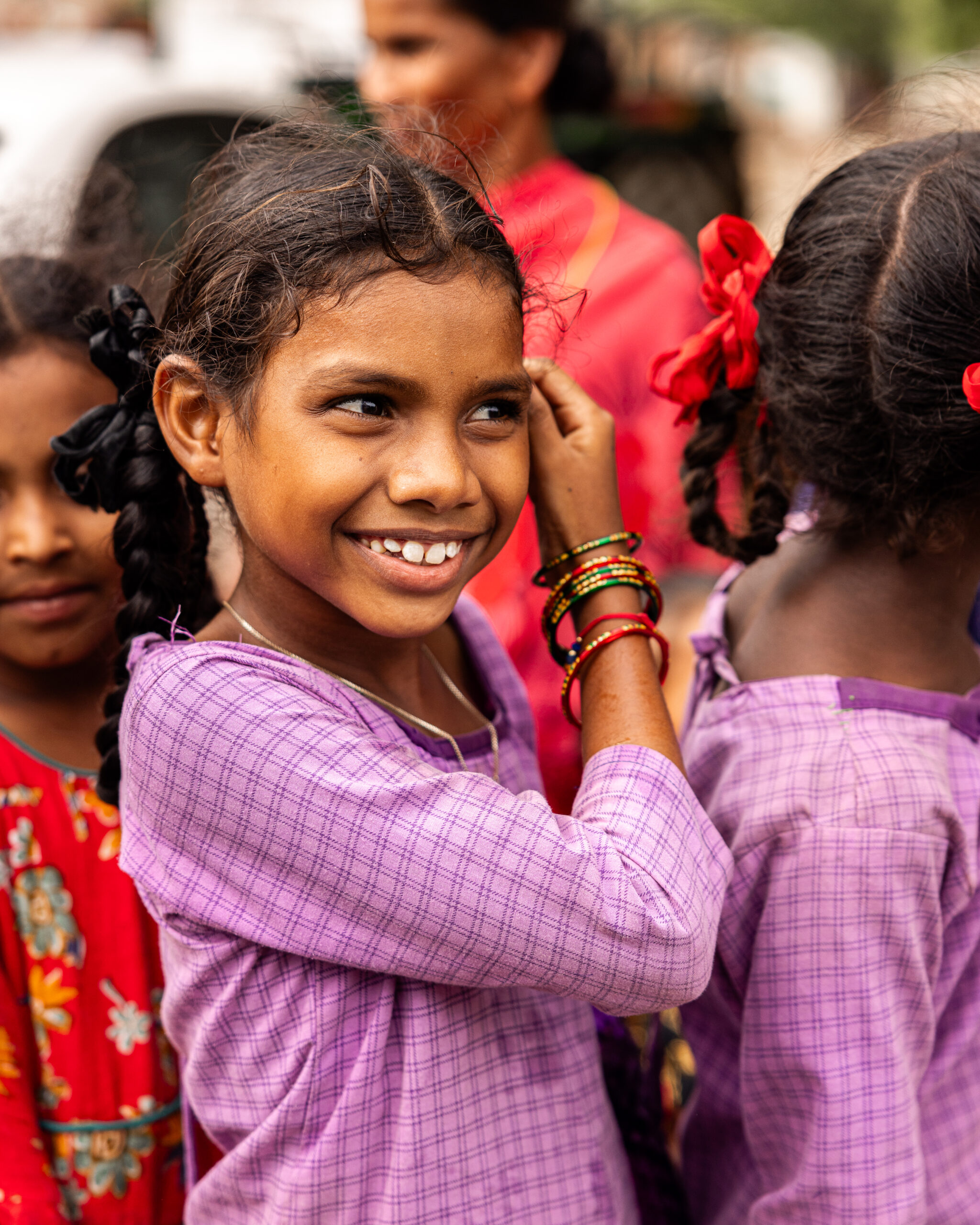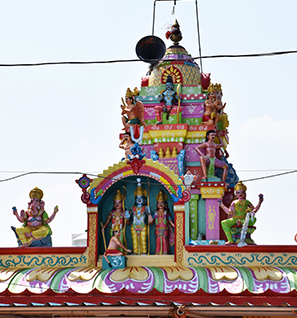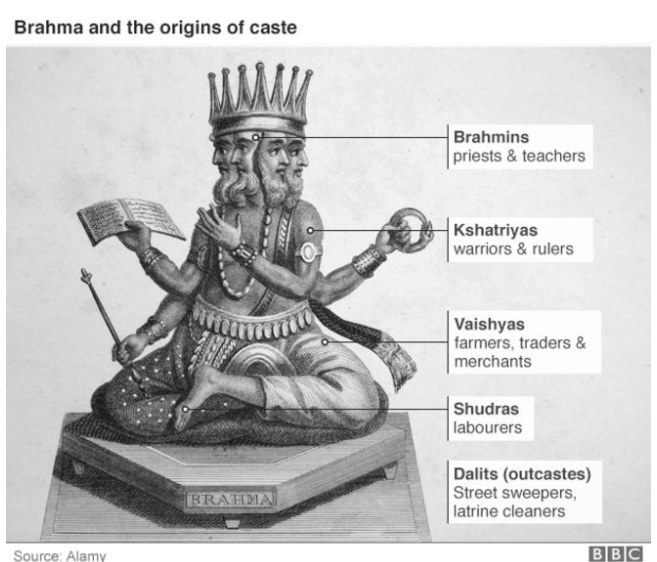

9 Min Read
How Rescued Children Rebuild Their Lives: Stories of Hope and Transformation
Read More
9 Min Read
Nov 8, 2018



You’ve likely heard the term, “karma” and maybe even used it a time or two. And if you’ve been fortunate enough to be around as someone finally gets what they deserve, you may feel a bit gleeful as you watch that person reap what they’ve sown. Then you ask for forgiveness and pray for them, of course. Or is that just me? Regardless, here in our Western culture, we might use this word in passing or in jest, or as we make snarky comments we probably shouldn’t. But in India, karma is not just a word said in jest, and it’s certainly not something to laugh at. Karma by definition is “the force generated by a person's actions held in Hinduism [and Buddhism] to perpetuate transmigration and in its ethical consequences to determine the nature of the person's next existence.”
On the surface, and perhaps for most Christian-Americans with a basic knowledge of other religions, the concept of Hinduism seems relatively simple enough to understand: people are born, they live their life making good choices and being of righteous moral character - or not - and when they die, they’re reincarnated. This means their soul is literally reborn as it is passed along into a new body. Hindus believe that the actions of the soul, while in its current body, will reap the consequences of those actions in its next life. The moving of the soul from one body to another is known as transmigration. The kind of body the soul inhabits next - human, animal or another living thing - is determined by one’s karma, those actions performed and accumulated in the previous life.
Well. Everything. Meriam-Webster defines a caste as “one of the hereditary social classes in Hinduism that restrict the occupation of their members and their association with the members of other castes sanctioned by custom, law or religion.”
India’s caste system, believed to go back some 3,000 years, is one of the basic pillars of traditional Hindu society. Although it seems to have several different origins, it was strongly influenced by stories of the gods in the Rig-Veda. The Vedas are ancient scriptures containing rituals, hymns, and philosophies that were handed down to the priests of the Vedic religion. One of four sacred texts, the Rig Veda, described the origins of the world and points to the gods for the origin of the caste system. Because the caste system is deeply rooted in the religion, most devout Hindus will likely see the system as necessary and righteous rather than oppressive and discriminatory.
By dividing people into different societal groups according to their profession and birth, the system puts them into four classes based on the principle of "varna": the Brahmins (the priestly class); the Kshatriyas (the ruling, administrative and warrior class); the Vaishyas (the class of artisans, tradesmen, farmers and merchants); and the Shudras (manual workers).


The four casts are even further divided into thousands of sub-castes, or varnas and jatis, which identifies an individual’s occupation. These varnas and jatis also determine a person’s purity level. Members of higher varnas or jatis are considered to have higher levels of purity, while the lower one’s class, the lower their purity. It is widely accepted that if a member of a higher class is “contaminated” by the lowest social groups, they should undergo extensive cleansing rituals.
If you looked at the graph, you probably noticed that there’s another group there and you may have questioned why it’s beneath the other four recognized castes. It’s because this class of people falls entirely outside the system. Why? Because they are considered so vile, so repugnant by the upper-castes, that they aren’t even worthy of a place in the system itself. These are the Dalits or Untouchables.
Our work in India is wholly focused on serving the Untouchables, the ones discarded by the Indian caste system. They are valued less than animals. They've been pushed out, devalued and degraded. They’re shunned from the rest of society and are believed to be unclean and unworthy. Even more disturbing is the Hindu belief that the Untouchables, like all other souls, are deserving of their fate, their karma. To truly understand why our work in India is so critical, you have to understand this system.
Untouchables are literally outcastes; a group that is so unworthy it doesn't fall within the caste system. Dalit communities are heavily concentrated in India’s vast rural areas, where roughly 80 percent of the country's population dwells. It is in these most remote areas where we find unreached villages and people groups and where the deep religious principles of Hinduism dominate. It is also the reason Set Free goes directly into these places of such profound oppression. We bring hope, love and, of course, clean water to those who have been continuously abused and ostracized since this country’s inception.
Because they are considered impure from birth, Untouchables perform jobs that are traditionally considered unclean, menial or degrading for very little pay. Roughly one million Dalits work as manual scavengers, cleaning latrines and sewers by hand and clearing away dead animals. Millions more are agricultural workers trapped in an inescapable cycle of extreme poverty, illiteracy, and oppression. And, though it’s illegal, another 40 million Indian people are bonded workers, working to pay off familial debts that could have been incurred generations ago. 15 million of these are children working as actual slaves, or in slave-like conditions hauling rocks, or working in fields and factories for less than $1 a day.
Well. Everything.
Let me tell you a story...
Vihaan and his thirteen-year-old daughter, Savita, have been working hard for hours collecting trash then sifting through it to see if there is anything they can keep for themselves. It is sweltering in the sun and Savita and her father are thirsty. Vihaan sends his daughter to the town well to fill their drinking pot while he sifts through more trash. Savita walks a block away and crosses the street to the hand pump well. It is kept away from the others - this one is for the unclean, for the unworthy - for her. Savita is an Untouchable and she is never allowed to forget it. She carries her small drinking pot to her well and begins pumping the handle but no water is coming out. She calls for someone to help but no one bothers. She looks across the street to a group of women chatting loudly and laughing as they hold their pots in hand. They, too, are waiting their turn at the well, only it’s a well that Savita is forbidden to use. She sees the water flowing and her throat is so dry it could crack. She thinks of her father and how hard he is working in the heat. He needs to drink, too. Bravely, Savita holds her head high and walks to join the women in line. Maybe no one will notice.
But someone does. The women begin yelling at Savita and slapping her face and arms! Someone knocks her pot from her hands and another shoves her to the ground. The thrashing continues as each woman strikes her. Through her tears, she hears a man’s voice just as he yanks her to her feet. “Where are you from?” he yells. “Where is your father and mother?” Take me to them!” Savita, terrified, points to the trash piles where her father will be waiting. The man squeezes her arm so hard she can feel his fingers bruising her. She sobs as she rounds the corner and sees her father - and he sees her. “What is this about?” Vihaan shouts. “Let go of my daughter!” Savita hears both the anger and the fear in her father's voice. The man throws Savita to the ground and begins to attack Vihaan. She is helpless. All Savita can do is sob and plead for this man to stop but he doesn’t hear her. Her cries are drowned out by the angry mob who is coming toward them.
We may not hear about things like this very often on our American news stations and we probably won’t see these headlines as we scroll through interesting topics online. But attacks like this happen daily in the Dalit communities throughout India. The Untouchables are relegated to living in constant fear of being publicly beaten, humiliated, stripped naked and paraded through the streets, burned, enslaved, raped or killed by upper-caste Hindus. Even walking through an upper-caste neighborhood - or getting water from a forbidden well - can be a death sentence. There is no question that the actual number of crimes committed against Dalits is much higher than what is reported. Because police, village councils, and government officials often support the caste system, which is based on the religious teachings of Hinduism, many crimes go unreported due to fear of reprisal. And although laws have been written to end the caste system, it still exists despite the government’s measures to abolish it or attempts to deny it. It is deeply embedded in the Hindu culture and until that changes the abuse won’t stop and these atrocities won’t end.
We can provide two life-changing things to the Untouchables - clean water and hope in Christ. It’s impossible to change this system with politics- but it can be changed with Jesus! Set Free and our Indian partners work to fulfill our mission to “love the unreached and embrace the untouchable”. The work we do is critical to saving the Untouchables from being forced to risk their lives or the lives of their children just to have a drink of clean water. But along with bringing them a well, we bring them the love of Christ. We tell them of their worth in God’s eyes and His infinite and unconditional love for them. We are able to show them His love through our free gift of clean water. They no longer have to feel ashamed and afraid. They can finally know how it feels to be made whole, worthy and welcomed into the arms of the Most High God.



See how far your dollars go in making an impact in the lives of others.